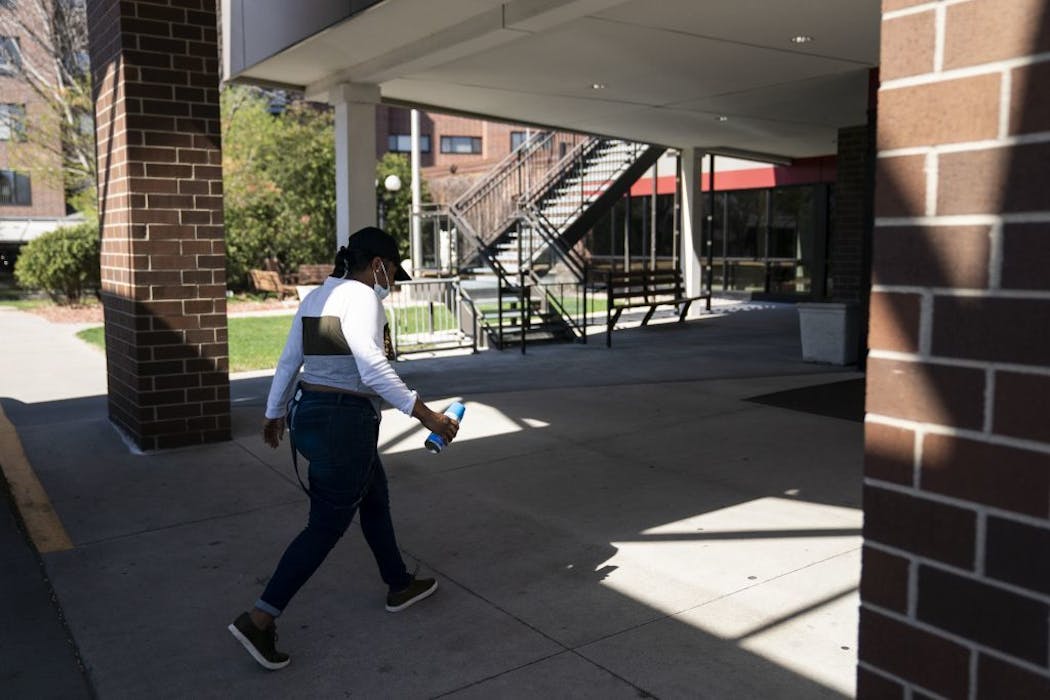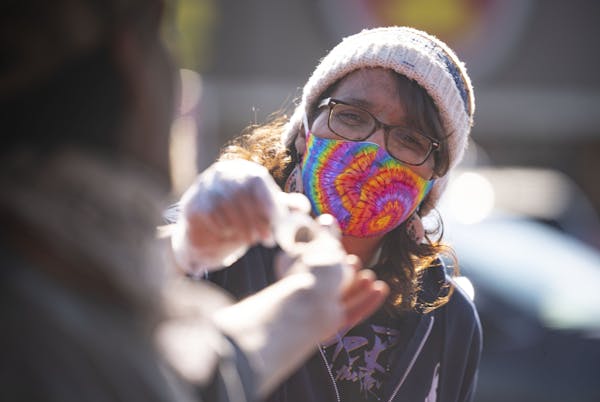Floyd Dalseth tried not to panic as he watched three of his roommates at the St. Therese of New Hope nursing home die within the past month. He asked if the deaths were caused by the coronavirus, but staff declined to share details.
Now Dalseth, 85, has contracted the deadly virus and fears he may never make it home. "I just want to get out of here," said Dalseth, who moved into the nursing home in October to recover from a bad fall. "Death is everywhere."
For several agonizing weeks, many seniors living at this sprawling senior community about 15 miles northwest of Minneapolis have been kept in the dark about the magnitude of a large-scale outbreak of the novel coronavirus.
There were scattered reports of people getting sick, but many patients and their relatives said they were not told that dozens were dying of COVID-19, the respiratory disease caused by the virus, and that scores more were becoming infected.
Amid growing public concern, officials at the 258-bed facility have begun to disclose more details about the devastating toll of the outbreak — the deadliest in Minnesota since the pandemic began. In a statement, St. Therese's top executive said 47 residents have died from COVID-19 and another 130 residents have tested positive for the illness since the facility began testing in late March, when tests became available.
About one-third of those with the disease were asymptomatic, meaning they had no symptoms when they were tested.
Barbara Rode, president and chief executive of St. Therese, said in a statement that the coronavirus outbreak "has been devastating to a community that prides itself on providing quality, loving care."
The mounting death toll at St. Therese underscores the harrowing scale of the crisis facing Minnesota's long-term care providers during the pandemic, as well as the challenges of keeping residents and families informed. Of the 343 deaths statewide from the virus, 271 have been in long-term care facilities such as St. Therese, where seniors live in proximity and often have underlying health problems.
Across the state, senior care facilities are still struggling to balance medical privacy with urgent demands for more information. Nursing homes and assisted-living facilities still have vast discretion over the reporting of COVID-19 cases and deaths, which has sown confusion and anxiety. The bare-minimum approach to disclosure by some providers has forced many families to endure wrenching waits for information about their loved ones, elder advocates say.
Minnesota's long-term care industry groups blamed the situation on shifting guidance from federal, state and county health agencies on when and how much to disclose when COVID-19 outbreaks occur.
"This is a deepening public health emergency, and facilities are creating more panic by not telling families what's going on," said Eilon Caspi, a gerontologist and adjunct faculty member at the University of Minnesota's School of Nursing. "In the name of privacy, we are doing a lot of harm."
St. Therese said it recorded its first two deaths from the virus on April 6, a month after the facility began efforts to prevent the virus' spread. But many residents and their families said they were not told of the extent of the outbreak, and only learned that people were dying at the facility from recent media reports. In a letter sent in early April, St. Therese told residents' families of a "positive case of Coronavirus," but made no mention of deaths or the existence of a wider outbreak at the nursing home, records show.
As fatal infections spread, families said they endured delays to get basic information from the facility's administrators. People desperate to connect with their parents described being shunted between staff and administrators, as frantic calls and e-mails went unreturned. Adding to the anxiety, these families said, was their inability to visit relatives at the nursing home because of a broader lockdown of senior care facilities across the nation.
The dearth of information has made it difficult for some families to make informed judgments about their loved ones' care. In interviews, several people said they would have considered moving their loved ones out of St. Therese had they known that so many were dying of the illness. Now, however, their relatives have tested positive for COVID-19, and they fear that moving them would do more harm by spreading the virus elsewhere.
"We were kept completely in the dark until it was too late to act," said Holly Doughty of Mendota Heights, whose 95-year-old mother lives at St. Therese.
Dalseth said he now wishes he had pressed for more information about the people he noticed dying in his cramped room at St. Therese. He has mostly recovered from the serious fall and back injury, which resulted in him being placed in a nursing home, and was weeks away from moving back to his home in Crystal, he said. He even lined up an in-home caregiver to help with the transition.
But now, he's contracted COVID-19 and is isolated to a floor of St. Therese with other infected residents.
Several times a day, he rolls through the hallways in his wheelchair and sometimes notices people being taken away on stretchers. Beds that were once occupied with sick patients are now empty, he said. Dalseth plans to return home as soon as he tests negative for the virus.
"It's a case of horrible timing," said Dalseth, who has not shown any coronavirus symptoms. "Now I feel trapped and I'm kicking myself for not acting sooner."
Doughty said she first asked about the coronavirus during a conference call with staff at St. Therese on April 7, and she was reassured the facility was taking precautions and her mother was safe. No one on the call, she said, mentioned positive cases or deaths. Then came silence: Ten days passed when Doughty and her three siblings could not reach their mother, who has severe dementia and is unable to answer the phone. Staff did not return numerous calls, she said.
Like many with loved ones at St. Therese, Doughty was shocked to learn through media reports last week that at least a dozen residents had already died of the virus. Doughty learned Thursday that her mother tested positive for the virus.
"No one had contacted us for so long that I had begun to think horrible, horrible thoughts like, 'What if my mother is no longer alive?' " Doughty said. "You start imagining the worst."
Victoria Bell of Crystal said she would have "seriously considered" moving her 56-year-old mother out of St. Therese had she known earlier that dozens of residents at the facility were dying of the virus. Now she feels it's too late: Bell received notice last week that her mother, who has late-stage cancer, has tested positive for COVID-19.
"This is life or death here," said Bell, as she prepared to bring a plate of food to her mother. "People were dropping dead all over that place and we had no idea. We had a right to know."
In her statement, Rode, the chief executive at St. Therese, said reports that the outbreak was hidden or that care was substandard are "unfair and untrue." She said families, guardians and responsible physicians were informed as soon as positive COVID-19 test results were received, and then were advised of "the massive movements" within the facility. All of St. Therese's residents have now been tested for the virus.
The virus has also taken an immense toll on the nursing home's staff. All told, 65 workers at St. Therese have exhibited symptoms of the coronavirus or have been exposed. All were sent home on quarantine until they recovered and were cleared to return, the facility said.
Rode noted that, in keeping with St. Therese tradition, staff continue to honor deceased residents with a funeral procession out the front door, serenaded with song and prayer. "Our grief is out in the open, as are our losses," she said.

In Duluth, it was windy enough on Tuesday to flip a FedEx truck traveling on the Bong Bridge

A tale of 124 hoarded Minnesota cats has at least a hundred happy endings




